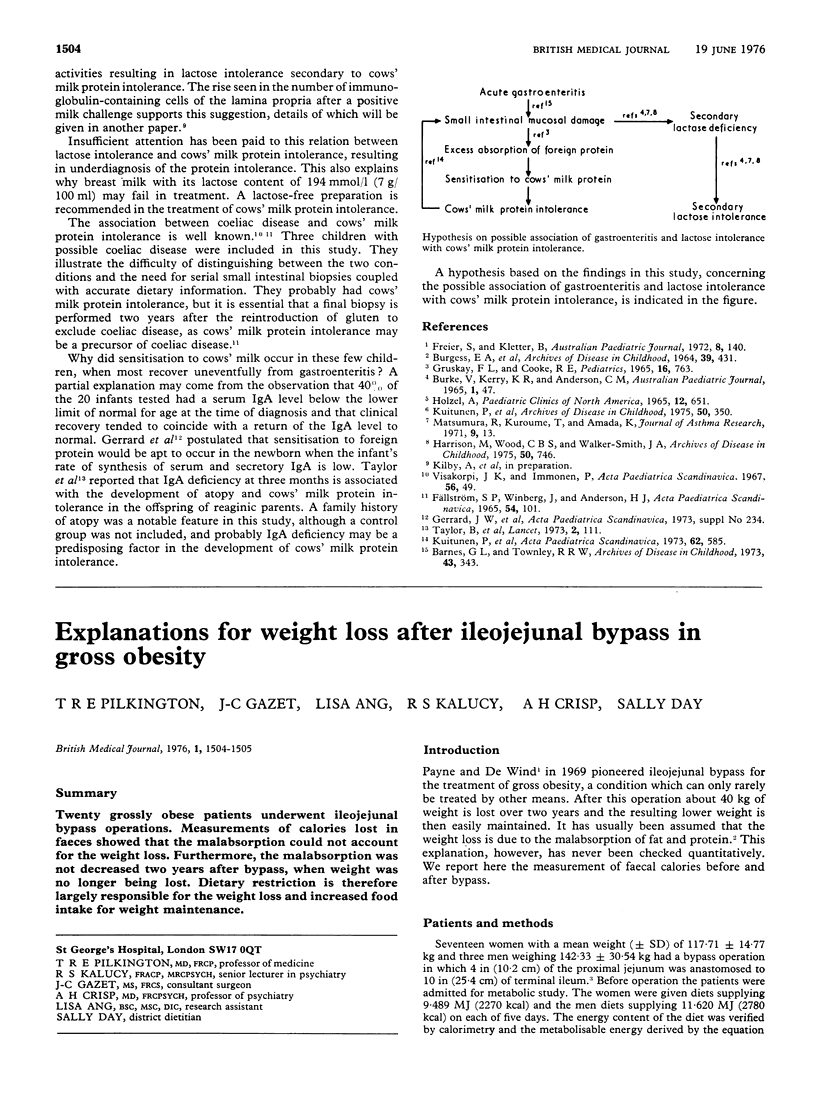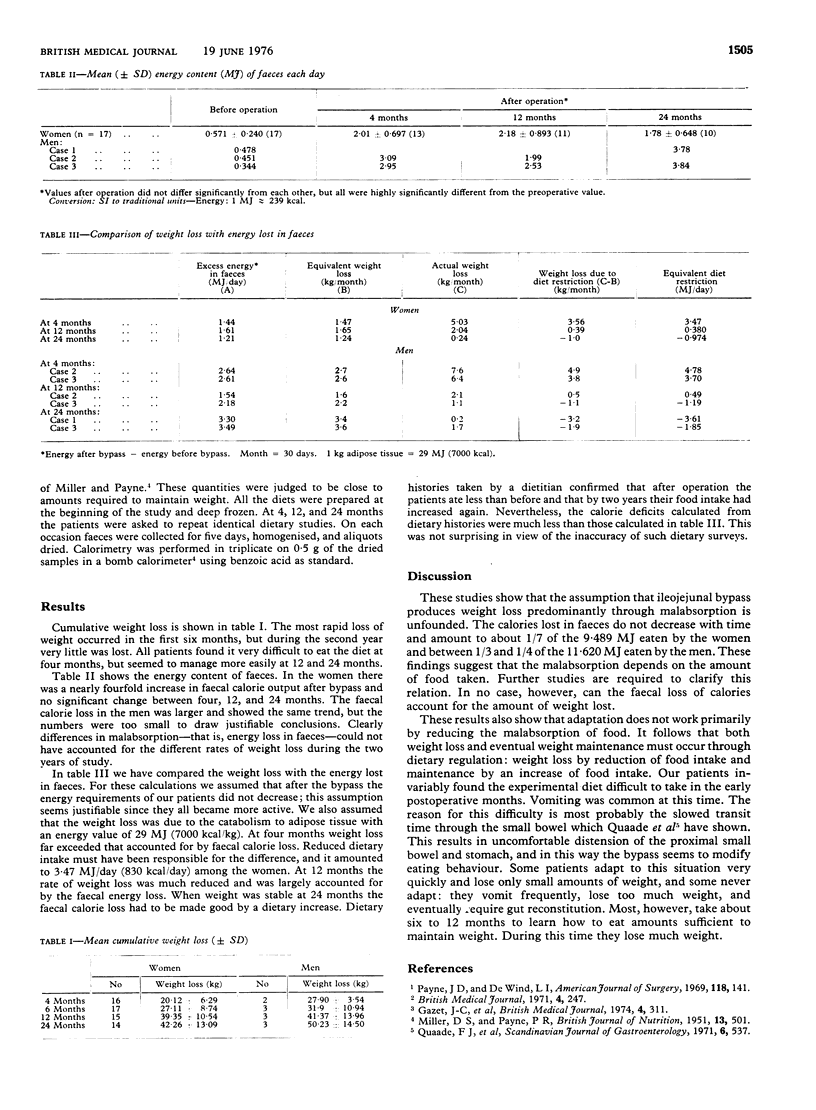Abstract
Twenty grossly obese patients underwent ileojejunal bypass operations. Measurements of calories lost in faeces showed that the malabsorption could not account for the weight loss. Furthermore, the malabsorption was not decreased two years after bypass, when weight was no longer being lost. Dietary restriction is therefore largely responsible for the weight loss and increased food intake for weight maintenance.
Full text
PDF

Selected References
These references are in PubMed. This may not be the complete list of references from this article.
- Gazet J. C., Pilkington T. R., Kalucy R. S., Crisp A. H., Day S. Treatment of gross obesity by jejunal bypass. Br Med J. 1974 Nov 9;4(5940):311–314. doi: 10.1136/bmj.4.5940.311. [DOI] [PMC free article] [PubMed] [Google Scholar]
- MILLER D. S., PAYNE P. R. A ballistic bomb calorimeter. Br J Nutr. 1959;13:501–508. doi: 10.1079/bjn19590064. [DOI] [PubMed] [Google Scholar]
- Payne J. H., DeWind L. T. Surgical treatment of obesity. Am J Surg. 1969 Aug;118(2):141–147. doi: 10.1016/0002-9610(69)90113-5. [DOI] [PubMed] [Google Scholar]


